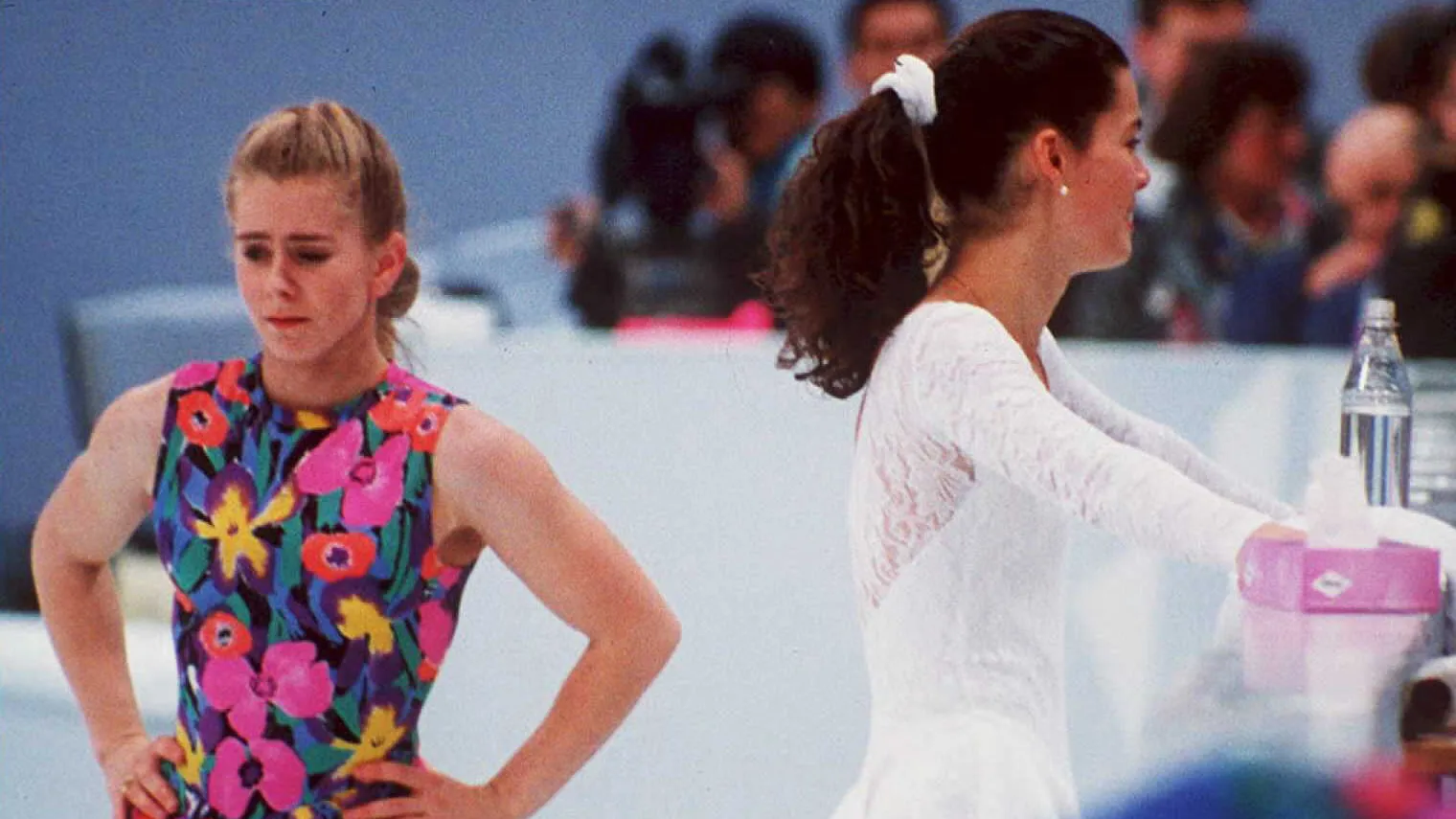Top 10 The Most Notable Olympic Scandals
10 The Most Terrible Official in Football History
Boxing contest between Magomed Abdulhamidov of Azerbaijan and Satoshi Shimizu of Japan, which was fixed for the 2012 London Olympics
One referee at the 2012 London Olympics may have shown the gravest, most egregious corruption ever seen. An uncontested bantamweight bout between Magomed Abdulhamidov of Azerbaijan and Satoshi Shimizu of Japan went down to a unanimous decision. With the exception that the victor was declared to be the one who was totally floored.
Surprisingly, Satoshi knocked Magomed down six times. But the official never counted the boxer down after each knockdown. Even when Magomed was down and out, the referee helped him adjust his headwear so he could keep playing. The bout was awarded to Magomed even though Satoshi was clearly the victor. The audience and broadcasters are equally irate, so it’s worth watching. Fortunately, Japan was able to have the ruling reversed after filing an appeal.
9 Twin Hacks
Madeline and Margaret de Jesus’s alleged Olympic cheating in 1984 sounds like a made-up story. The couple really did pull a Parent Trap, which makes the whole thing sound like something out of a kiddie movie.
Madeline de Jesus hurt her hamstring while jumping for Puerto Rico. Not wanting to miss out, she was slated to race in the 4×400 relay again six days later. She then devised a scheme to have her sister, who was both her twin and a talented sprinter, sneak into the relay in her stead. After executing the strategy as planned, Margaret qualified to run for Madeline, but their secret was discovered by a reporter. To his credit, Madeline’s coach withdrew the whole squad from the tournament so as not to bring shame on anyone.
8 A French Judge
The 2002 Salt Lake City Olympics: The Figure Skating Scandal That Made History | Weirdest Moments
The 2002 Salt Lake City Olympics pairs figure skating competition was judged by Marie-Reine Le Gougne, a Frenchwoman. She observed the gold-medal-chasing teams from Russia and Canada. The Canadians appeared to have beaten the Russians in the end, both on TV and at the arena. The Russians were awarded the gold when the judges cast their votes.
Russia unexpectedly prevailed because France and Russia conspired to swap judges’ ballots, which gave them an unfair advantage. Le Gougne confessed to authorities and the media after becoming disturbed over her involvement in the plot. She was the most derisively referred to judge—The French Judge—because of her confession, despite the fact that she seemed to be the only one with any moral fibre or regret.
7 Bounties in Salt Lake City
Olympic Bid Bribery Scandal in Salt Lake City in 2002 (CBC)
I feel like I should mention that Salt Lake City was perhaps not the best choice for the 2002 Summer Olympics. After four unsuccessful attempts, the city decided to bribe members of the International Olympic Committee with money, gifts, and maybe even prostitutes in order to secure the fifth attempt at bidding for the Olympics.
Some members of the IOC and many of the SLC employees who had begun the bribery lost their jobs as a result of the incident. It also showed that SLC wasn’t the only one bribing Olympic officials. Similar bribes had been discovered in the two Olympics prior to this one.
6 The authors Kerrigan and Harding
Calendar: The Tonya Harding-Nancy Kerrigan affair
The Tonya Harding/Nancy Kerrigan affair has become so well-known that it even inspired a film starring Margot Robbie, “I, Tonya.” Two of the top American female figure skaters, Harding and Kerrigan, were slated to face off in 1993’s qualifying trials for a place on the 1994 U.S. Olympic team in Lillehammer. Tragically, Harding was promoted to her position when an assailant brandished a lead pipe, attacking Kerrigan.
Naturally, the whole thing became a major soap opera. Harding knew about the attack before the authorities did, and her ex-husband hired the assailant. Harding may or may not have participated in the attack’s planning. Both skaters made it to Lillehammer, but Harding had a mini-meltdown and Kerrigan got silver.
5 The Top Secret of Greg Louganis
Remember When Greg Louganis Hit His Head on the Diving Board? It Happened On NowThis
At the 1988 Seoul Olympics, Greg Louganis, who is widely considered the best diver of all time, aimed to further cement his already stellar record. After a collision with the diving board in the preliminary round, Louganis suffered a concussion and bloodied the pool. After receiving stitches, he resumed his stellar performance.
But Louganis didn’t come clean about his HIV diagnosis, which he received six months before the 1988 Olympics began, until seven years later. Fearing he might infect another swimmer, Louganis bled in the water, exposing himself to the possibility of HIV transmission through fluids. Louganis hid his illness and the apparent danger because of it and the extreme homophobia of the period. Health officials have subsequently clarified that the likelihood of infection was practically zero, therefore it’s a good thing nobody got sick.
4 Boris, the Mastermind
Who was the most cunning athlete to ever cheat at the Olympics? | Weirdest Moments
Former pentathlete Boris Onishchenko is known as “Boris the Cheat,” “Dishonest Boris,” and “the biggest cheat” due to his cunning and premeditated cheating at the 1976 Montreal Olympics.
At one point during the pentathlon’s fencing portion, Onishchenko’s epee lighted up, indicating a hit. The catch was that his epee hadn’t even touched his opponent yet, and it was still floating in midair. Despite initial dismissal as an isolated incident, the second incorrect point sparked concerns. Upon examination, it was discovered that Onishchenko’s epee contained a switch that, when flicked, would record a touch automatically, regardless of whether a real touch had taken place or not. All of the apparatus was cunningly designed but clumsily implemented.
3 The Entire Year 1936
The 1936 Summer Olympics in Berlin and Hitler’s Nazi Propaganda | German Olympic History |
Perhaps the most well-known Olympic Games ever were in 1936 in Berlin. During Hitler’s terror reign against European Jewish populations, which began three years after his ruthless ascension to power, the games were held in the capital of Nazi Germany. Protests by Jewish athletes in the Olympics ensued as a result of this.
It is widely believed that American officials also participated in the games, with the goal of appeasing Hitler by excluding any Jewish athletes from specific events, all in an effort to demonstrate Aryan supremacy. In a poetic sense, this led to African-American athlete Jesse Owens being selected for the 4×100 relay team, which resulted in him receiving one of his gold medals, thereby casting doubt on the premise of Aryan supremacy.
2 Doping in Russia
2016: The Sochi Winter Olympics: Russian Doping Discovered
Doping in athletic competitions is something Russia has done for quite some time. Allegations followed by positive tests become commonplace in the 2000s and 2010s. It wasn’t until two shocking confessions emerged from inside the state-sponsored doping programme that the entire scheme was exposed.
Olympic runner Yuliya Stepanova and her husband, Vitaly Stepanov, were involved in the Russian anti-doping programme, which they helped uncover from 2010 to 2014. While Vitaly secretly spoke with the World Anti-Doping Agency through hundreds of messages, Yuliya secretly recorded athletes discussing the system. In 2016, Grigory Rodchenkov, the ex-director of the Moscow Anti-Doping Laboratory, provided conclusive confirmation of the entire affair. Since then, Russian athletes have had 43 medals revoked and the nation will not be able to participate in the 2020 or 2021 Tokyo Olympics.
1 Doping in East Germany
East German Doping | People and Politics
For the roughly half-century that spanned from WWII’s end to the Berlin Wall’s collapse, East Germany was a separate entity. In spite of its brief existence as a nation, its diminutive size, and a host of social, economic, and political challenges, East Germany triumphed in numerous athletic events, notably the 1964–1988 Olympics. It turned out that this was because of a massive doping programme that was run by the state—a programme that was so bad that it embarrassed even Russia.
The East German Olympic teams won an incredible total of 203 gold, 192 silver, and 177 bronze medals during their brief reign, with 40 of those coming in 1976 alone. Worldwide suspicions were aroused by this apparently inconceivable achievement, along with stories from ex-East German athletes who had managed to escape the country. The nation conducted its own drug tests, thus the results were never conclusive. Former athletes are still dealing with the health consequences of the doping ring, which was under the control of every level of the German government until the country’s records were made public after the reunification.
SEE ALSO: Top 10 The Most Interesting Things About Steven Spielberg



